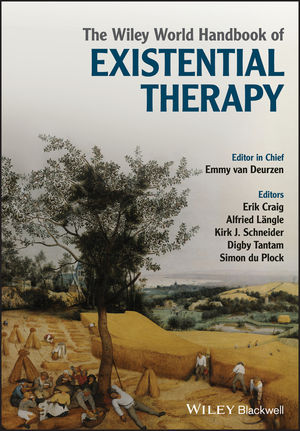Vad innebär det att vara människa, hur lever man ett gott liv och vad är meningen med det hela? Den existentiella psykoterapin har påverkats av och utvecklats ur existensfilosofin där dessa frågor är centrala. Den handlar om människans grundläggande villkor och hur du som individ ska hitta ett sätt att förhålla dig till dem. Existensfilosofin behandlar olika livsteman såsom mening, ansvar, frihet, val och värderingar. Livets viktigaste – och kanske svåraste – frågor har belysts på ett nyanserat och mångfasetterat sätt av ett stort antal filosofer under årens lopp.
Ur filosofin har olika humanistiska terapiformer vuxit fram. (De fyra primära inriktningarna i världen identifieras i den engelska texten nedan). Den existentiella terapiform som är vägledande i Sverige, och som SEPT arbetar med, har en existentiell-fenomenologisk inriktning. Individens hela livsvärld fokuseras via en kartläggning av våra fyra existentiella dimensioner: den fysiska, den sociala, den personliga och den andliga. Det existentiella samtalet handlar således om vårt förhållande till våra fysiska omständigheter och vår kroppslighet, våra relationer och vårt sociala nätverk. Det rör vår identitet – vem vi är för oss själva och vem vi strävar efter att vara. Och det rör vårt förhållande till livets mening, våra värderingar, grundantaganden och hur vi förhåller oss till godhet och ondska.
Den existentiella psykoterapins framväxt
“Not long after the sprouts of the earliest approaches to existential psychology began to emerge in Europe, different schools of existential thought began to emerge. While there was some dialogue between the different approaches and the different regions where existential psychology was developing, there lacked a forum to bring together these different existential voices through most of its history.
The First World Congress of Existential Therapy was held in London in 2015 under the leadership and vision of Emmy van Deurzen. This became the largest gathering of existential therapists in history, and it brought together the different streams of existential psychology in dialogue. The preparation for the first Congress included the establishment of a Scientific Committee that helped inform the vision on the Congress. Additionally, it served to provide a unifying definition and description of the common themes of existential therapy across the different branches of existential therapy.
From the First World Congress of Existential Therapy, the World Confederation of Existential Therapy was formed and The Wiley World Handbook of Existential Psychology was commissioned. The Wiley Handbook, similar to Mick Cooper’s categorization of the branches of existential therapy, identified four primary schools of existential therapy: 1) Daseinsanalysis, 2) Existential-Phenomenological Therapy, 3) Existential-Humanistic and Existential-Integrative Therapy, and 4) Logotherapy and Existential Analysis. Other emergent existential approaches, such as Zhi Mian Therapy, were also considered.

The Second World Congress of Existential Therapy was held in Buenos Aires in 2019 and the Third World Congress of Existential Therapy was held in Greece in 2023. The second and third Congress built from the success of the first Congress drawing even more people to the gatherings. The focus has continued to emphasize the building of the worldwide existential psychology community and advancing the dialogues.
The Fourth Congress will be held in Denver, Colorado, and seeks to continue the important work established with the first two Congress. We are striving to bring in new attendees and new perspectives. As part of this, we are reaching out to regions of the world that have been underrepresented at the previous Congresses and engaging existential perspectives, such as Terror Management Theory, that not prevalent in the scholarship of the first Congresses”.
Den engelska texten är hämtad från webbsidan “Fourth World Congress of Existential Therapy”
